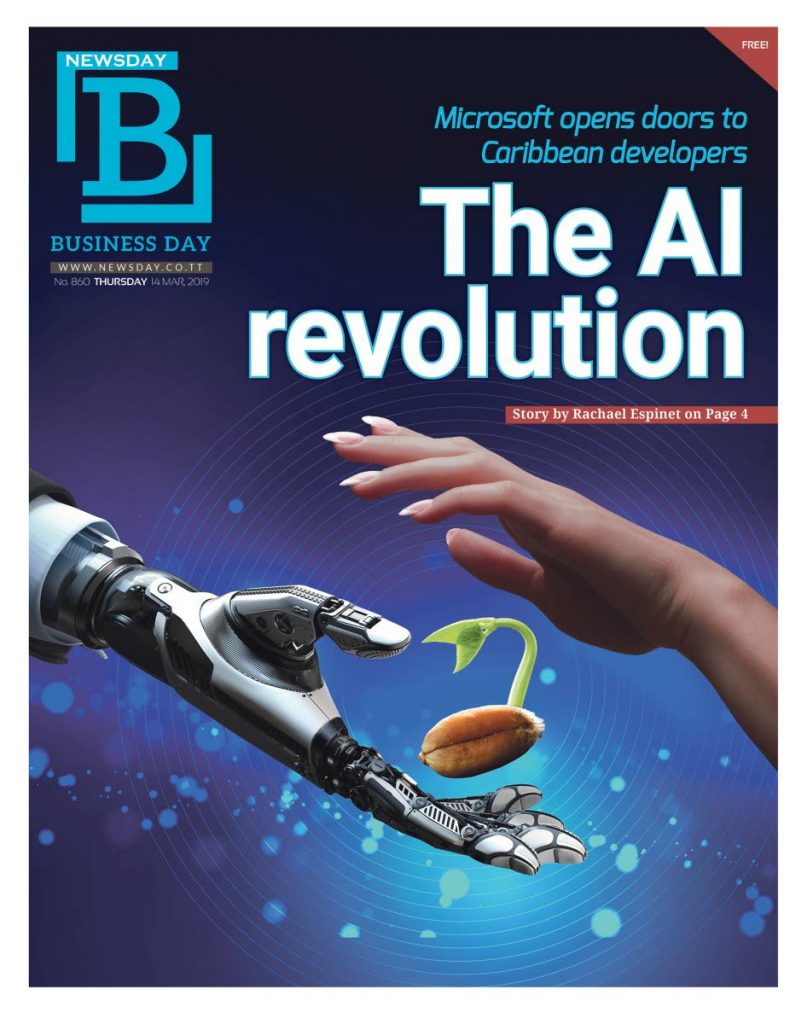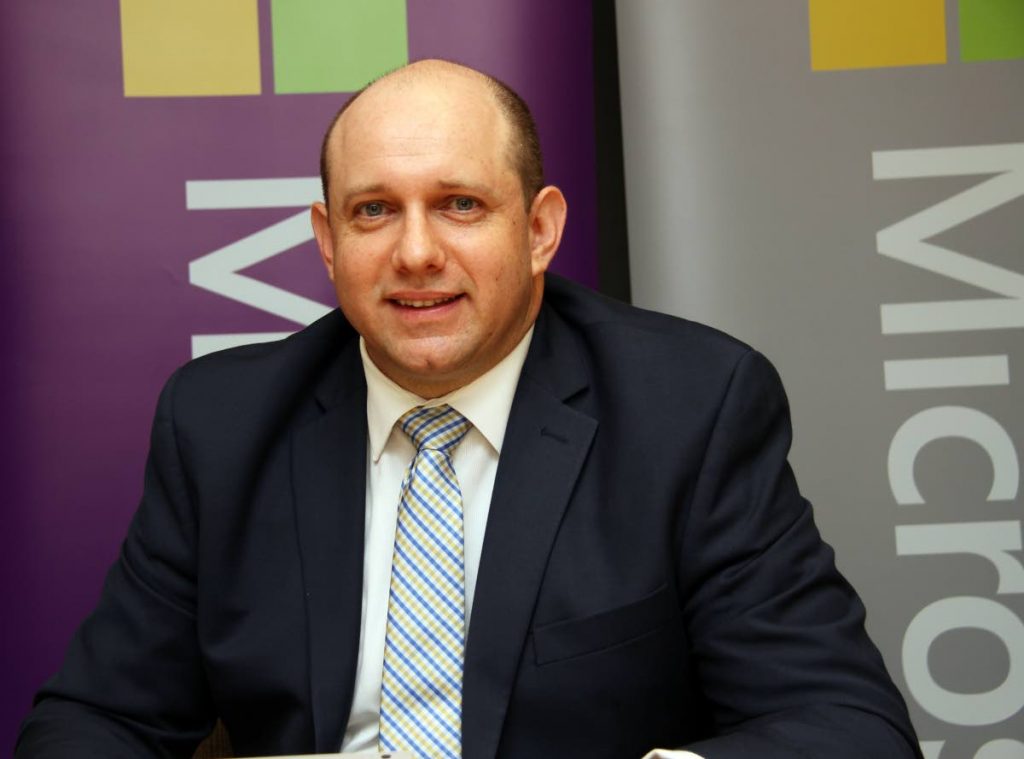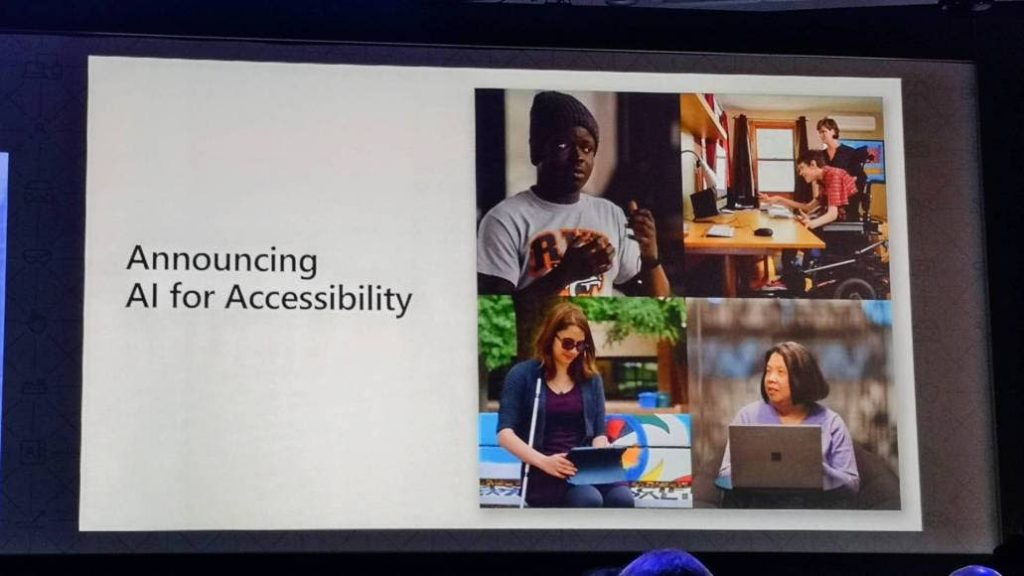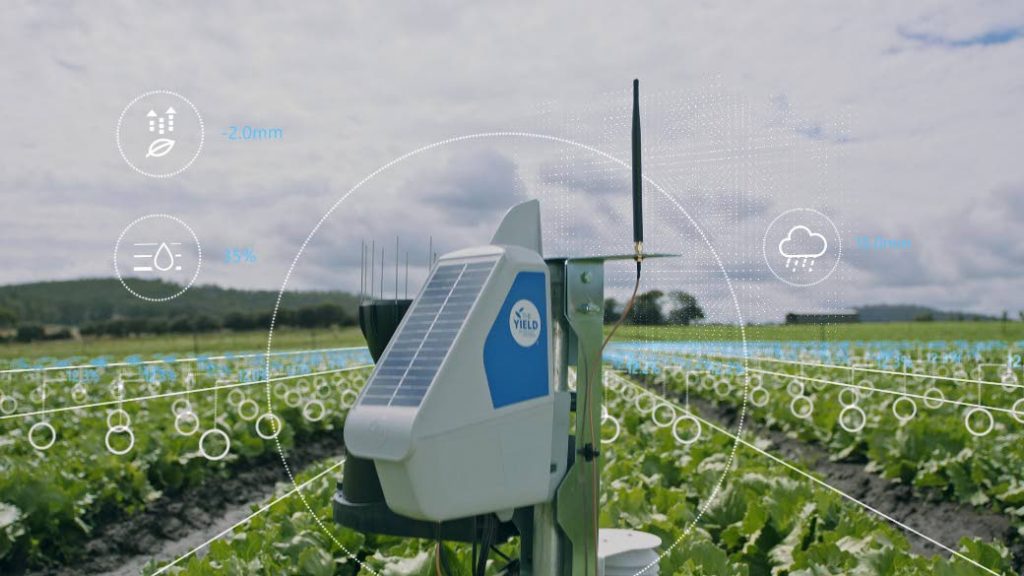AI for the Caribbean

The robot revolution is here. There is no escaping it. The world is now in the fourth wave of the industrial revolution where cloud-based computing, big data and a proliferation of sophisticated algorithms are being used to create artificial intelligence (AI) programmes that are transforming the way the world works.
Business Day met with general manager of Microsoft Caribbean Herbert Lewy, at TT Microsoft's head office on Mucurapo Road, Port of Spain, when he visited the country in February to discuss AI and the opportunities Microsoft is providing for developers.
“The definition of AI is amplifying human ingenuity. The human being is a unique species and what we are proposing is to amplify and augment this capacity,” he said.

Lewy said AI is a powerful tool that not only reshapes the way work is done but will transform human ingenuity to help workers perform more efficiently.
AI, he said, can help replace repetitive tasks that do not require human inventiveness. AI chat bots can deal with customer service issues and AI programmes can protect against fraud.
“For financial services, a bank can use it to protect a user from fraud and protect identity. AI has a very easy use of cameras and algorithms to protect the identity of the individual,” he said.
Lewy described a problem Uber, a digital ride-share taxi service, had with drivers committing fraud. Though Uber would do background checks on employees to ensure there were no sex offenders or criminals working for them, drivers could allow someone else to drive their car under their profile.
He said Uber contacted Microsoft for assistance and in less than three weeks Microsoft programmed Microsoft Azure’s Cognitive Service, AI tech which utilises speech and facial recognition, into Uber’s app to ensure the correct driver was working in the system.
“You cannot trick the system by putting a picture up of that person. You see a very simple service with investment in time and resources. You get the impact,” Lewy said.
Lewy describes AI technology as a levelling platform that can help emerging economies compete with global powerhouses.

He said AI can be a great equaliser in business as all countries have access to the same technology for the same price. This, he said, can improve the quality of products and efficiencies of business.
He identified the agricultural sector as one that can greatly benefit from AI. The Dominican Republic, he said, utilised AI and saw a 14 per cent improvement in their GDP in that sector.
“In Dominican Republic there is a huge project going on where it is getting all the information on the weather, crossing the data with information of meteorological places with certain sensors. Just by understanding when it would be raining, that can save a huge number of crops,” he said.
The AI programme was able to sense the wind speed, determine if the crops would have been uprooted by the wind or how often the plants would need watering.
He said the knowledge farmers have is invaluable and cannot be replaced by AI technology, but AI can help amplify their knowledge. Lewy said the agricultural sector is one area that is more laggard in terms of developing technologies, but by utilising the AI tools available, farmers can optimise their crop yield.

"We have a huge challenge as humanity needs to feed the whole world. Having access to food, that implies getting the best of farming environment and agriculture, that means just improving certain percentages of the yield would generate a huge impact in terms of populations having access to food,” he said.
After Hurricane Maria hit Puerto Rico in September 2017, he said the University of Columbia submitted a project to the AI for Earth Grant programme to find out how much of the ecosystem was affected in terms of biodiversity and the continuity of some species. Today the AI information is being used to detect how different plants and trees and different bio-elements are subsisting so the continuity of the species could be managed.
In fact, Lewy flew in to Trinidad to discuss the opportunity Microsoft is offering globally for organisations who want to use AI technology to improve the environment or help people with disabilities.
Developers, non-government organisations (NGOs) and people who want to do good in the world can access Microsoft's AI for Good grant programmes – AI for Earth and AI for Accessibility.
Globally, there is a US$25 million grant available for AI for Accessibility for which proposals are accepted from people who want to use Microsoft's AI technology to empower people with disabilities.
AI for Earth has a US$50 million global grant that seeks projects focusing on four pillars: agriculture, biodiversity, climate change and water. Anyone from TT is welcomed to apply for these grants.
Lewy said he is seeing AI being utilised more in the Caribbean region, and governments, business owners and workers should prepare themselves for the new tools AI.
“The opportunity is huge, the potential is fantastic, but there is a huge but. Leaders, policy makers, government officials have to take this very seriously and build the necessary framework and environment for people to succeed in this digital era with AI,” he said.
Regarding TT’s government, Lewy said there is curiosity and interest, but some Caribbean regions need to be more intense with their curiosity.
“They need to ask for more and get behind things using the power of these disruptive technologies otherwise we would be missing the trends and that is a key characteristic of this revolution.”
Sixty-five per cent of primary school students will be working in jobs that haven’t been created yet thanks to AI technology.
Lewy suggests the students who are interested in focusing on AI technology get familiar with two coding languages, Python and R. He said most importantly, a student must be proficient in mathematics.
“If you want to go deeper on algorithms you probably would have to work on R or Python. But you mostly have to be proficient in maths and statistics than in technology per say, because these systems respond in these types of way of thinking.”
While having sufficient computer science programmes in all schools is important, the rapid change technology is introducing to the work force means workers, regardless of age or job position, must re-skill themselves to adapt to the robot revolution.
“I am super positive about the future. I am also ensuring that my message is clear about re-skilling. Re-skilling does not mean you have to go from zero to be a software engineer. The thing is, many of our colleagues are reinventing themselves doing more tweaks on what they used to do to be present in digital times,” he said.
Lewy said many people are fearful of AI replacing them at their jobs, and emphasised that AI is there to help boost human ingenuity and reduce repetitive tasks.
“We encourage people to differentiate between rational questions and curiosity to emotional fear. The emotional fear will paralyse you. It won't be allowing you to make thing happen and you will just get multiple excuses why not to do things. If you go into a rational process of externalising what you are feeling, what you need, what your services are, you can overcome that, basically owning a path to success,” he said.
Microsoft offers massive open online courses (MOOCs) for free on sites such as edx.org . He also suggests that people who want to organise training sessions contact the Microsoft head office.
“There are multiple sites we put in the web for people to have access to the information. The beauty of having a local office is people can contact directly our local people. We would be more than glad to create spaces for training for people and get them much more involved in the uses of AI,” he said.
Lewy is optimistic about the future of AI in the Caribbean. He says there is no rule book to success with AI. People just have to embrace the changing technology to move forward into the future and be prepared to be life-long learners during this fourth industrial revolution.

Comments
"AI for the Caribbean"